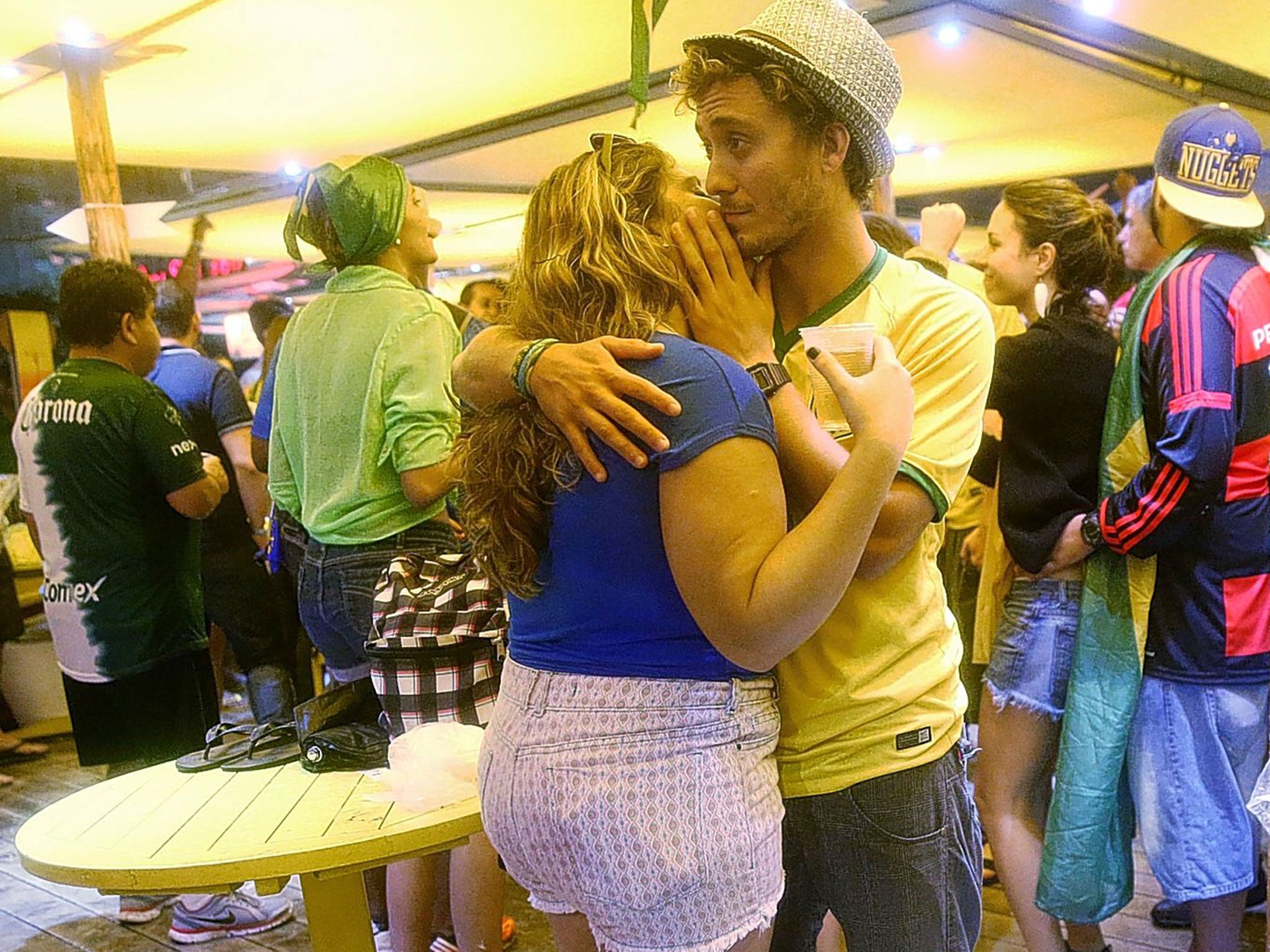Brazil v Germany World Cup 2014 comment: Why emotional scars of Tuesday’s shocker will not run as deep as 1950s ‘Maracanazo’
The jokes in the papers and the reaction of fans who laughed and cheered suggest many Brazilians saw this one coming

The day after the final game of the 1950 World Cup, in which Brazil lost 2-1 to Uruguay, the writer Jose Lins do Rego wrote: “I saw people leave the Maracana with their heads hung low, tears in their eyes, speechless, as if they were returning from the funeral of a loved father. I saw a nation defeated – more than that – one without hope … it stuck in my head that we really were a luckless people … always pursued by bad luck, by the meanness of destiny.” The 1950 World Cup is remembered as national tragedy, possibly the greatest in contemporary Brazilian history.
In sporting terms, Brazil’s 7-1 shocker against Germany is an even greater humiliation, the worst-ever defeat of the national team. I saw the match in a bar in Rio de Janeiro, a block away from a packed Fifa Fan Fest on Copacabana beach. Just after kick-off it started to rain. By the end of the first half, tens of thousands of Brazilians were already walking home, drenched and shell-shocked. They were silent and sad, but no one was crying.
The reason that the 1950 “Maracanazo” traumatised the nation was that it was so unexpected. Brazil had been playing wonderful football, and victory against their small neighbours was taken as a fait accompli. Victory would have given them their first title, and been a vindication of the association between football and national identity that first emerged in the 1930s.
The 2014 “Mineirazo” is different. Brazilians knew they were underdogs before the game, and even though the scoreline exceeded their worst nightmares, the defeat was not a surprise but a death foretold. When I spoke to Brazilians in Copacabana they said they were sad not just because of this single defeat but because for years now Brazil has not played like the Brazil of old. “The magic has gone,” one said. The game revealed with unforeseen clarity what they have known for a while.
Because football is so closely bound up with national identity, World Cup defeats are felt more strongly here than in other countries. Football is how the country knows itself. Losing is a huge blow to national self-esteem. “We needed something to believe in,” another fan said. “Something to give us strength.”
But, once the grieving is over, I doubt the 2014 defeat will leave as deep emotional scars as the one 64 years ago. Brazil has changed a lot since 1950, when winning at football was the country’s best chance at international success. Brazil remains the most successful World Cup nation, with five victories. It has also had lots of sporting stars in other disciplines – such as motor racing, tennis and volleyball – and become a geopolitical force, the world’s seventh-largest economy, and a member of the “Bric” group of emerging economies with Russia, India and China.
In the last decade tens of millions have moved out of poverty, changing the social make-up of the country. Many people realise that the improvements to their quality of life are more important victories than the joy that winning the World Cup for a sixth time would have brought.
The last time Brazil reached a World Cup final, in 2002, I wrote that I hoped Brazil would lose because only a traumatic defeat would result in a much-needed change to the way the football is run in Brazil.
The Brazilian Football Confederation (CBF) – endlessly mired in corruption scandals – does a disservice to its sporting legacy by not having a co-ordinated national system of youth football.
It must share some of the blame for the decline in Brazilian football over the last decade. Young footballers are not given proper social or technical support, and often are trained by unqualified coaches and scouts whose main interest revolves around selling them abroad.
Now the national team have suffered the most embarrassing defeat in their history, pressure will intensify for change at the CBF. But politicians and the people are ultimately powerless because of the vested interests that run the sport.
One consequence of losing on Tuesday is that President Dilma Rousseff – she faces a general election this year – will not be able to make political capital out of a Brazilian victory (although she will probably win, anyway). During the World Cup, the election campaigns have been in full swing.
Will there be any other political ramifications? A year ago, up to two million Brazilians across the country took to the streets in demonstrations against the government for spending public money on World Cup stadiums instead of schools and hospitals.
The mood here is that new protests on that scale are unlikely – the money has been spent, after all, and Brazilians feel that the organisation has gone well.
But what makes me think that Brazilians will be able to move on from this defeat – at least emotionally – was the humour with which it has been taken.
Yesterday’s papers were full of jokes about the result, listing the funniest lines from social media.
When Germany scored their sixth goal, the crowds in the bar at Copacabana started to laugh, and when Germany scored their seventh they cheered. This would never have happened in 1950.
Join our commenting forum
Join thought-provoking conversations, follow other Independent readers and see their replies
Comments